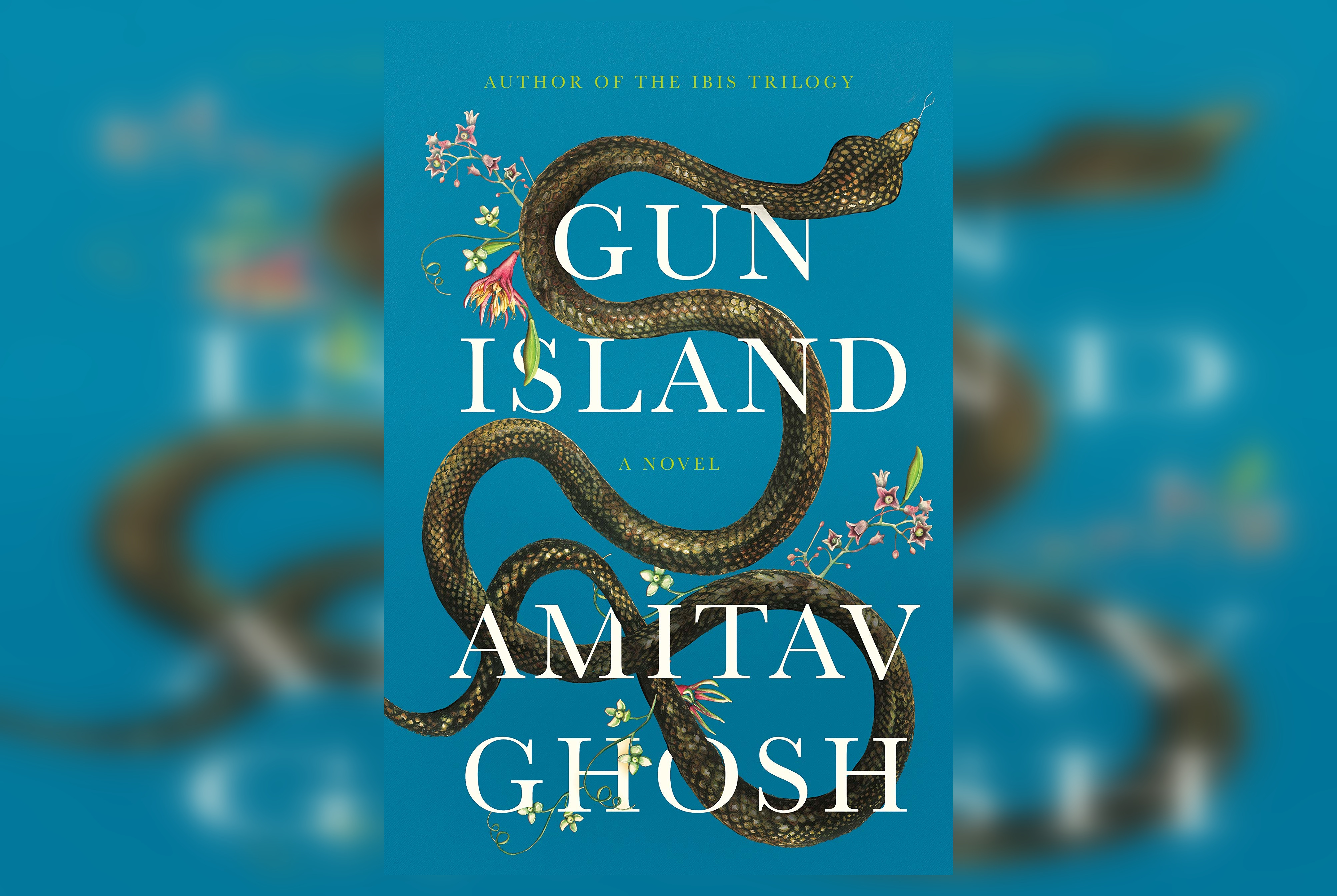Amitav Ghosh is an Indian author of international acclaim who came to the world’s attention with the publication of his first novel, The Circle of Reason. The book was awarded France’s prestigious Prix Médicis étranger. He went on to author the Ibis trilogy, which includes Sea of Poppies, a novel short-listed for the 2008 Man Booker Prize. Ghosh’s work is known for exploring the themes of love, loss, communal violence, tradition and memory. His novels are predominantly historical, and typically populated with characters whose stories stretch across geographical boundaries and span the world, yet his home town of Calcutta and the influence of Bengali culture are never obscured. Ghosh’s background as a historian and an anthropologist is evident in his writing and in the meticulous research that precedes every novel, yet his mastery lies in being able to capture the human condition through epic periods in history.
Gun Island is Ghosh’s ninth novel, and is set in the same Sundarbans that he describes in his 2006 novel, The Hungry Tide—an untamed and complex ecosystem of canals and low-lying wetlands in Ghosh’s birthplace of West Bengal that is home to a rapidly disappearing wildlife. Its population of cyclone and flood ravaged people are always on the lookout for a storm on the horizon, always one disaster away from ruin. In Gun Island, we return to the Sundarbans, where there is a sense of lost hope and helplessness, of being unable to salvage a land devastated by ecological damage.
Not many writers today choose to explore the threat of climate change through their fiction, perhaps in support of the argument that fiction is a refuge from reality; that it is an escape. Ghosh, however, has admitted that climate change caught his attention in 2005 while he was researching the Sundarbans for The Hungry Tide. 2016 saw the publication of Ghosh’s non-fiction volume, The Great Derangement, which explores the idea that future generations will look back on our climate denial as a great, global derangement. In an interview with Bomb magazine, Ghosh tells Curt Stager that, “the distinction between fiction and nonfiction is itself beginning to look increasingly strained in this era of anthropogenic climate change.” In the same interview, Ghosh theorizes that the lack of climate change narratives in fiction may have something to do with the classification of such subjects as “science fiction,” or simply, outside the bounds of what is considered “serious fiction.”
Ghosh, however, is by no means the only novelist brave enough to tackle climate change—this novel stands among others like Flight Behavior by Barbara Kingsolver, a work he cites as an inspiration. Gun Island weaves together the story of Deen, a Brooklyn-based Bengali-American, Bonduki Sadagar, a seventh-century gun merchant who is said to have been pursued across oceans by a vengeful goddess, and others that Deen encounters on his travels. For those familiar with Ghosh’s work, this knitting together of the past and present; this weaving of seemingly disparate strands, is one of this author’s greatest skills, and is a defining characteristic of his fiction.
In Gun Island, Ghosh employs the technique perhaps to less success than he has done previously. There are plot lines and coincidences and conveniently-serendipitous events that threaten to challenge the reader’s credulity. Cinta—an old friend of Deen’s, whose story serves to tie up many a loose end—is a character who is perhaps most guilty of this offense. She tests believability with her almost other-worldly ability to do things like locate lost objects, and become privy to information through her penchant for being able to “see” and “hear” things. The novel ends with each character following their own route to Venice; the island acting as the backdrop against which myth and reality merge amidst a burst of activity.
Much more affecting is Ghosh’s portrait of human migration, of the surprise and delight that Deen experiences upon arriving in Venice and hearing the Bengali tongue all around him—from workers to the street vendors who are working to ensure that every tourist is offered an authentic Venetian experience. Ghosh’s depiction of the abuse and alienation faced by these men and women appears to be, seemingly, a nod to the current crisis that has erupted along the United States-Mexico border. This is Ghosh at his tenacious, exhausted best—marrying a mythical tale from his homeland with the plight of the human condition, all the while holding up a mirror to the country that he now calls home.




